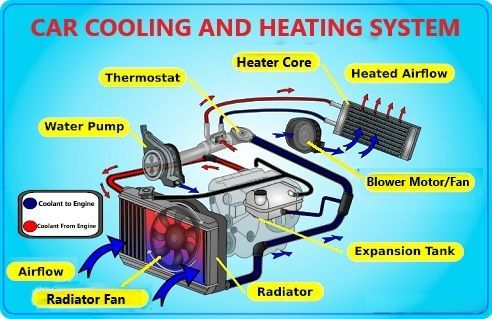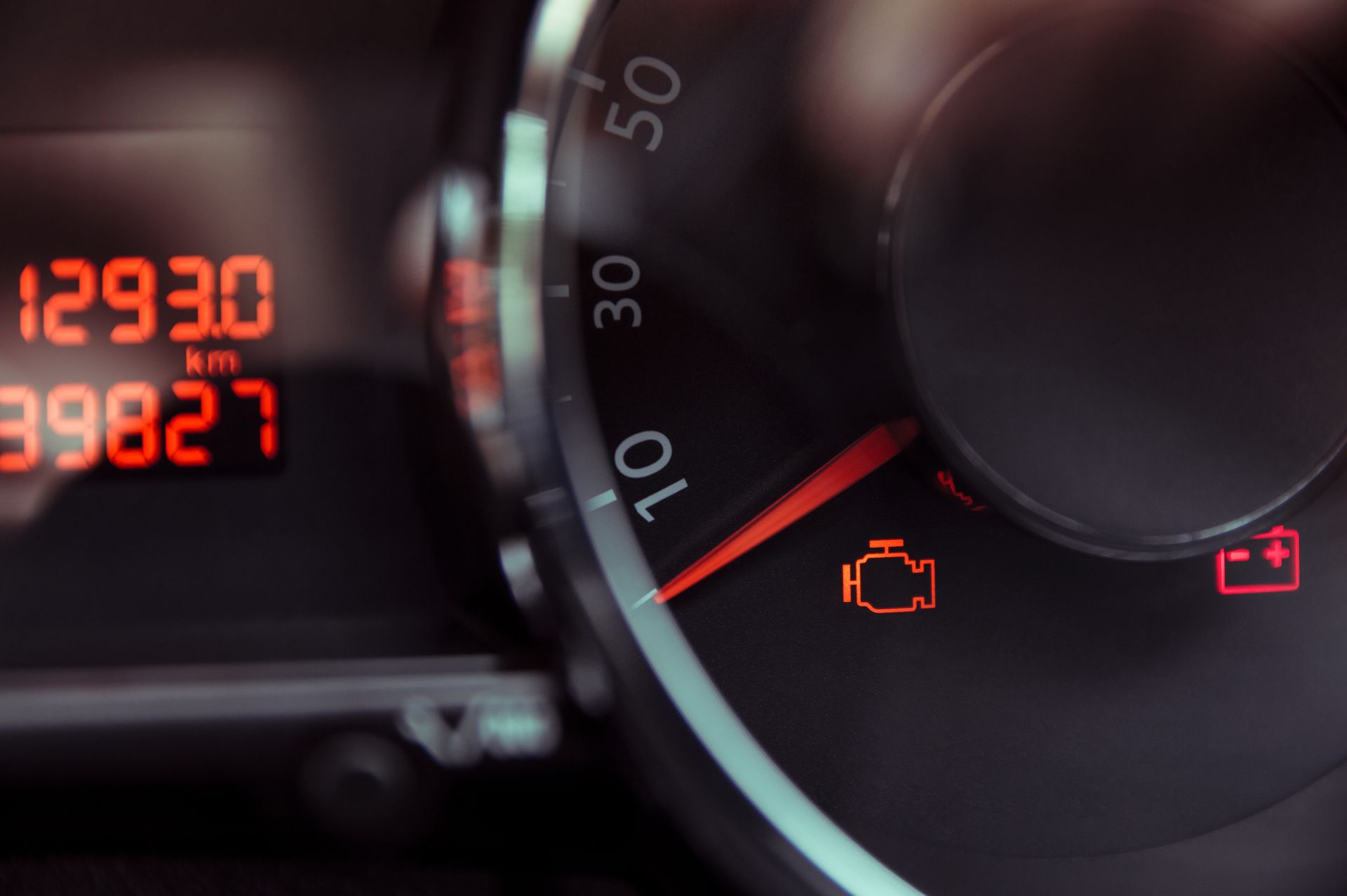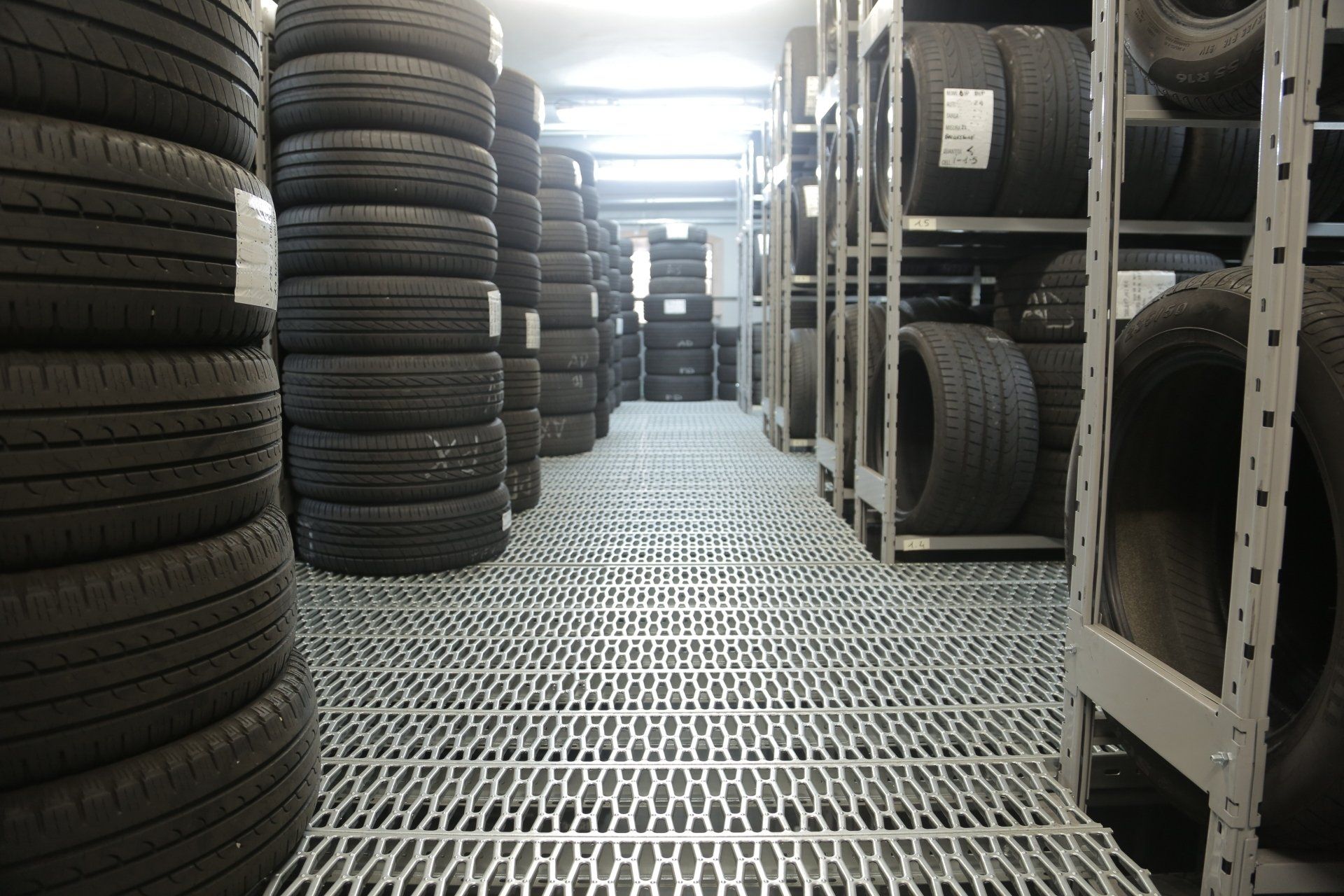Blog
Our Blog

By Jody Downes
•
February 14, 2025
At Heavensent Automotive in Franklin, TN, we understand that a reliable vehicle heating and cooling system is essential for your comfort and safety on the road. Whether it’s the cold days of winter that Tennessee does have at times or the hot, humid summer days, your vehicle’s climate control systems must be in top shape to keep you and your passengers comfortable. It is important to maintain both of these systems, helping you avoid unexpected breakdowns and ensure your vehicle performs at its best year-round. Understanding Your Vehicle’s Heating and Cooling Systems Your vehicle’s heating and cooling systems are a complex system of components that work together to regulate the temperature inside the cabin and help keep the engine running at optimal temperature and performance levels. Your vehicle’s heating system revolves around the heater core. The cooling system parts that play a part in bringing heat into the cabin include the coolant fluid, water pump, thermostat, and radiator. Basically, the heating system pulls the heat from the engine’s coolant to heat the cabin, while the cooling system circulates coolant through the engine to dissipate excess heat and prevent engine overheating. Both systems rely on similar components, such as coolant, radiators, thermostats, water pump and fans, to function properly. • Coolant - Mix of antifreeze and water • Water Pump - Pushes coolant to and out of the engine and radiator and heater core • Thermostat - Monitors temperature and opens and closes accordingly to let coolant through the engine • Radiator - Helps disperse engine heat • Heater Core – Small radiator that allows hot air to blow through your vents To keep your vehicle running smoothly in fluctuating temperatures, regular maintenance is key. Here are the steps you can take to keep your car’s heating and cooling systems efficient and prevent expensive repairs down the road: 1. Check and Refill Coolant Regularly Coolant is crucial for both a vehicle's heating and cooling systems because it circulates through the engine, absorbing heat to prevent overheating in hot weather, and also flows through the heater core to provide warm air inside the car during cold temperatures, essentially acting as a heat transfer medium for both systems. Key points about coolant's role in heating and cooling: • Temperature regulation: Coolant absorbs excess heat from the engine, preventing it from overheating, and then transfers that heat to the radiator where it is dissipated into the air. • Antifreeze protection: In cold weather, the antifreeze component in coolant prevents the water in the cooling system from freezing, which could damage the engine. • Heater Core function: A portion of the coolant flows through the heater core, which is a small radiator inside the car's cabin, allowing hot air to be blown through the vents when the heater is turned on. • Corrosion prevention: Coolant also contains additives that help inhibit rust and corrosion within the engine cooling system, including the heater core. You should check your coolant levels every few months, especially before long trips or as seasons change. Make sure the coolant is filled to the appropriate level and top it off if necessary. If you’re unsure of what coolant to use, consult your owner’s manual or call or visit Heavensent Automotive for advice. 2. Inspect the Radiator and Hoses for Leaks Your radiator and the network of hoses connected to it are responsible for moving coolant through the engine. Over time, these hoses can crack, develop leaks, or become clogged, reducing the efficiency of your cooling system. What to Look For: • Puddles of coolant under your vehicle • Low coolant levels (even after topping up) • Steam or unusual smells coming from the hood If you notice any of these signs, it’s crucial to have your cooling system inspected right away. At Heavensent Automotive, we offer thorough inspections to detect leaks and repair or replace faulty components before they lead to bigger problems. 3. Replace the Thermostat as Needed The thermostat controls the flow of coolant through your engine, opening when the engine gets too hot and closing when it cools down. A faulty thermostat can lead to engine overheating or prevent your vehicle from warming up properly on those cold days. An overheating engine can lead to costly repairs or even engine failure if not addressed immediately. Thermostats can wear out over time and should be replaced if they become stuck or start to malfunction. If your vehicle’s temperature gauge is erratic, or if the engine runs too hot or too cold, it’s a sign that your thermostat may need replacement. Visit us at Heavensent Automotive to have your thermostat inspected and replaced if necessary. 4. Maintain Your Heater Core The heater core is a critical part of your vehicle’s heating system. It uses hot coolant from the engine to warm the air before it’s blown into the cabin. Over time, debris can accumulate in the heater core, or it may develop leaks, leading to a lack of heat in your vehicle. Signs of Heater Core Issues: • Foggy windows or moisture inside the car • A sweet smell (coolant) in the cabin • Little to no heat coming from the vents If you experience any of these issues, bring your vehicle to Heavensent Automotive in Franklin, TN, for a thorough heating system inspection. 5. Inspect and Replace Cabin Air Filters Your cabin air filter plays a key role in keeping the air inside your vehicle clean and free of debris. If the cabin air filter is clogged, it can reduce the efficiency of both the heating and cooling systems, leading to poor airflow and moldy or bad smells in your vehicle. We recommend replacing your cabin air filter every 12,000 to 15,000 miles, but this may vary depending on driving conditions. Replacing it more frequently may be necessary, especially those driving in dusty or dirty environments. At Heavensent Automotive, we can inspect your filters to ensure they are not dirty, as well as, replace them if needed. 6. Run the Air Conditioner During the Winter It may seem unusual, but running your air conditioner during the winter helps keep the system in good working order. The AC system contains refrigerant and lubricants that need to circulate to prevent the seals from drying out and developing leaks. By running the AC for a few minutes every couple of weeks, you’ll keep the system lubricated and ready to perform when the hot weather hits. At Heavensent Automotive, we can also perform AC checks and recharges to ensure your system is functioning optimally. 7. Schedule Regular System Inspections Perhaps the most important tip of all is to schedule regular maintenance and inspections of your vehicle’s heating and cooling systems. Routine maintenance can identify potential issues before they become costly repairs, ensuring your car remains safe and comfortable. At Heavensent Automotive in Franklin, our experienced technicians are here to provide thorough inspections and expert repairs for your vehicle’s heating and cooling systems. Whether it’s a routine coolant flush, a coolant leak, a thermostat replacement, or diagnosing a heating issue or an overheating engine issue, we’ve got you covered. Stay Comfortable and Safe with Regular Maintenance Maintaining your vehicle’s heating and cooling systems is essential for both your comfort and the longevity of your engine and components. By keeping up with regular maintenance tasks like checking coolant levels and leaks, inspecting hoses, replacing filters, performing a coolant fluid exchange, you can avoid expensive repairs and ensure your vehicle performs optimally and keeps you comfortable as you drive. If you’re unsure about the condition of your heating or cooling systems, or if you’ve noticed any signs of trouble, please don’t hesitate to call or bring your vehicle to Heavensent Automotive. We’re here to help and keep your vehicle running smoothly and safely, no matter what the weather or issue!
Heaven Sent Automotive
Mon - Fri 7:30 AM - 5:30 PM
Payment Options







Services
List of Services
-
Automotive Diagnostics & TestingAutomotive Diagnostics & Testing
-
Brake Service & RepairBrake Service & Repair
-
Suspension & Steering Service & RepairsSuspension & Steering Service & Repairs
-
Fluid Exchanges & FlushesFluid Exchanges & Flushes
-
Electrical Service & RepairElectrical Service & Repair
-
Engine Service & RepairEngine Service & Repair
-
HVAC ServicesHVAC Services
-
Oil Change ServicesOil Change Services
-
Tire Services & RepairTire Services & Repair
-
Batteries, Starters and AlternatorsBatteries, Starters and Alternators
List of Services
-
Automotive Diagnostics & TestingAutomotive Diagnostics & Testing
-
Brake Service & RepairBrake Service & Repair
-
Suspension & Steering Service & RepairsSuspension & Steering Service & Repairs
-
Fluid Exchanges & FlushesFluid Exchanges & Flushes
-
Electrical Service & RepairElectrical Service & Repair
-
Engine Service & RepairEngine Service & Repair
-
HVAC ServicesHVAC Services
-
Oil Change ServicesOil Change Services
-
Tire Services & RepairTire Services & Repair
-
Batteries, Starters and AlternatorsBatteries, Starters and Alternators
-
Drivetrain Service & RepairDrivetrain Service & Repair
-
Fuel System Service and RepairFuel System Service and Repair
-
Cooling System Service and RepairCooling System Service and Repair
-
Preventative and Regular MaintenancePreventative and Regular Maintenance
-
Vehicle InspectionsVehicle Inspections
-
Emissions Service & RepairEmissions Service & Repair
-
Wheel AlignmentWheel Alignment




© 2024 Business Name. All Rights Reserved | Website managed by Shopgenie




